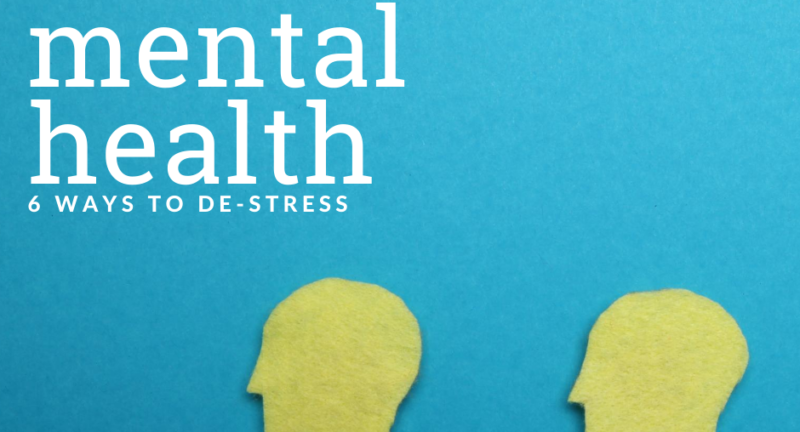
5 Tips for Safeguarding Your Mental Health This Thanksgiving
Even though Thanksgiving is regarded as a time of togetherness, gratitude, and joy, there are many reasons why the holidays may be anything but bliss. This year in particular may look a little different than previous Thanksgivings, especially if quarantines and travel restrictions prevent you from gathering as you normally would. In addition to the unique challenges of 2020, holidays can be tough for another reason: holiday blues and added stress. According to a survey conducted by the American Psychological Association (APA), almost 38% of individuals polled listed stress as the #1 reason their mental wellness dipped during the holiday season.
Here are Next Step 2 Mental Health, our team of providers is here to support your mental health — no matter what season or holiday we approach. In this article, we’ll explore five ways for you to safeguard your mental health this Thanksgiving.
1. Prioritize sleep
If you’re hosting Thanksgiving, you might be busy cleaning, decorating, and planning. However, don’t let the excitement and busy-ness of the day prevent you from getting enough sleep. Constantly running on not enough sleep can impact your mental and physical well-being. Specifically, research links sleep deprivation with increased rates of insomnia as well as increased irritability.
WHAT TO DO: Aim for 7-9 hours of sleep in a cool, dark room. Avoid using any blue lights (e.g., TV, tablets, phone) for 1-2 hours before bed. You can learn more about the effects of blue and warm lights on your sleep in this article: Do Warm-Colored Lights Help You Sleep Better?
2. Stick with your normal routine
For individuals with ADHD, sticking with your normal routine each day is essential. However, a daily routine is important if you have other mental health conditions, including depression, anxiety, OCD, and bipolar disorder. According to a study published in Lancet Psychiatry, creating (and sticking with) a daily routine improves your ability to sleep at night, reduces emotional difficulties, and supports overall mental health.
WHAT TO DO: Holidays, however, can create many opportunities to detract from your normal routine. Try to stick with your normal routine as much as possible. The National Alliance Of Mental Health (NAMI) recognizes that this can be hard during holidays; however, they suggest to adhere to your routine as much as possible. For example, even if you plan a Thanksgiving dinner with family in the evening, don’t skip your normal morning routine.
A quick note about your medications: If you take daily medication, continue to stick with your medication schedule even during the holidays. You shouldn’t skip your dose or alter your medication schedule unless instructed to do so. Consider setting a reminder on your phone if you think the schedule disruptions might cause you to forget a dose.
3. Create a Budget for Thanksgiving Décor or Meals

Stress has an undeniable impact on your mental well-being, and Thanksgiving can add financial stress to your list of concerns. If the thought of unexpected purchases adds to your stress load, create a budget for any out-of-the-norm purchases — things that normally aren’t your monthly budget. This can include decorations and food for your parties. Once you create your budget, stick with it!
If you plan on doing any holiday shopping after Thanksgiving, add that to your budget too.
4. Don’t Skip Your Workout

There’s an unending list of the benefits of exercise. According to research published in the Primary Care Companion for Clinical Psychiatry, exercise boosts your mood, reduces stress levels, and gives you quiet time to decompress and just think.
When it comes to Turkey Day, there are plenty of ways to sneak a little exercise into your day:
- Go for a walk around the block — either alone or with family
- Go for a hike in the morning before your feast
- Toss a football in the yard
- Walk your dog and go around the block a few extra times
- Start the day with an online exercise program
- Crank up the radio and dance
If the weather is nice, head outside for your workout. The experts at Harvard share that time spent in nature can boost your mood.
Need more ideas? Read this blog: 4 Ways to Stay Active This Fall.
5. Practice Healthy Stress Management Techniques
Even if you try every tip on this list, it’s not possible to eliminate every source of stress, and that’s okay. The best strategy is to reduce what stress you can and then manage the rest of it with healthy stress management techniques.
During Thanksgiving (or any other stressful situation), it might be tempting to relieve stress by pouring an extra drink, using food as comfort, or even taking drugs to relax. These coping mechanisms may cause more problems in the long run. However, you can prepare by coming up with a list of healthy outlets for stress. MentalHealth.gov suggests getting fresh air, exercise, meditating, reading a relaxing book, doing art, and practicing deep breathing exercises.
You can also find help by:
- Talking with a friend or loved one
- Talking to a therapist
The takeaway: instead of relying on alcohol, drugs, smoking, or even food, protect your mental health by relying on healthy, evidence-based stress management techniques.
Don’t Enter the Holiday Season Unprepared
If you’re struggling with depression, anxiety, or another mental illness, we can help you get the treatment you deserve. At Next Step 2 Mental Health, it’s our mission to help you live a happier life, a better life.
Give us a call at our Louisville, Kentucky office at 502-339-2442, or send us a message to request more information.
Related Posts
Fear and Phobia: What’s the Difference?
A phobia is an aberrant or extreme fear of something. In some cases, the fear is...
Stress and Mental Health: How Is Your Brain Affected?
Stress is frequently linked to physical issues (like headaches, muscle tension,...


